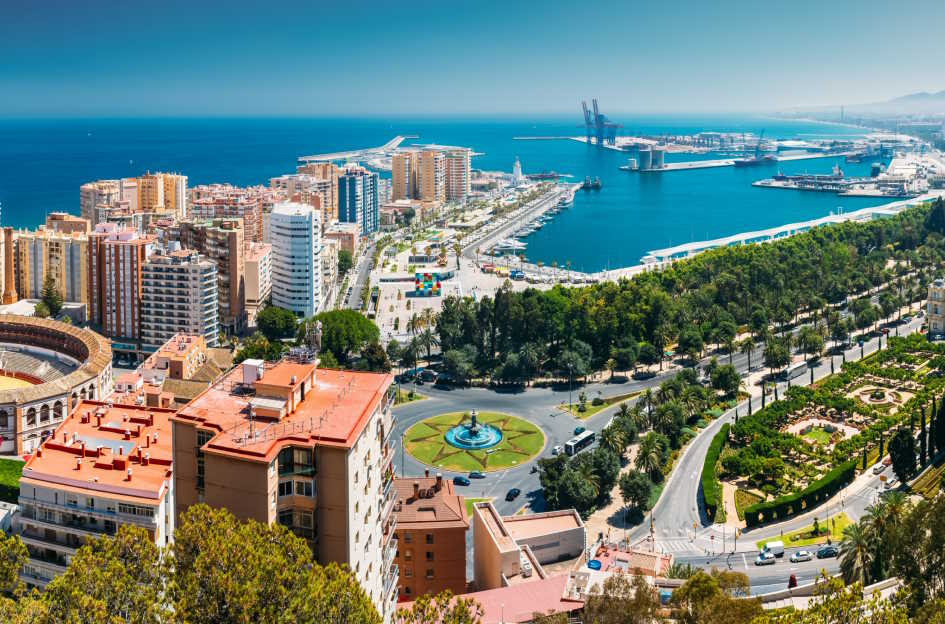If you’re not a Spanish citizen and want to live in Spain, you have to obtain Spanish residency. The process that you have to follow to get Spanish residency depends on your nationality, whether you are from an EU country, and if not, what you plan to do whilst you are a Spanish resident.
Nationals of member states of the European Union and Switzerland, as well as other countries party to the agreement on the European Economic Area, have an unconditional right to reside in Spain. Nationals of countries aside from these, are able to gain residency based on achieving other qualifying conditions.
For someone planning to live long term in Spain, temporary Spanish residency is the first step towards getting permanent resident status, which can be applied for after 5 years. Thereafter if someone so wishes, they can apply for Spanish citizenship after completing 10 years of permanent residency in Spain.
Spanish Residency for Citizens of EU Countries
Whilst all nationals of other EU countries and their dependant family members are free to live and work in Spain, since 2007, there has been a requirement that all EU citizens coming to live in Spain for more than 3 months register as Spanish residents and get a Spanish Residency Certificate. This has to be done in person at the Foreigners Office, ‘Oficina de Extranjeros’ in their province of residence, or at designated National Police stations. On registering, a credit card sized green residency certificate is issued. The full name for this is, certificado de registro de ciudadano de la unión, however it is commonly referred to as certificado de residencia‘, or simply ‘residencia‘. It has name, address, nationality, NIE number (Número de Identificación Extranjero) on it, and the date of registration as a Spanish resident.
EU nationals taking up residency in Spain, can apply for their Spanish residency certificate ‘certificado de residencia‘ any time after arriving in Spain, and should do so within 3 months of their arrival. Your can read more about the process for applying for residency as an EU citizen in our article Spanish Residency Certificate for EU Citizens.
As the UK has now left the EU, British UK nationals no longer apply for a Spanish residency certificate, and now apply as non-EU national citizens of third countries.
Spanish Residency for British UK nationals and Citizens of Other Non-EU Third Countries
British / UK nationals and citizens of other third countries wishing to get Spanish residency, must first obtain an appropriate visa before applying for residency.
There are some exceptions to this, for example, if you are joining a family member who is already a Spanish resident and you are their dependent and a national a country who’s citizens do not have to obtain a Schengen (Tourist) Visa to enter Europe, e.g. USA.
Lists of countries who’s citizens do and don’t need Schengen Tourists visas can be found here: https://www.schengenvisainfo.com/who-needs-schengen-visa/
Visa’s must be applied for through the Spanish embassy in your country of nationality, before your travel to Spain.
Once you arrive in Spain with the relevant visa or meeting residency eligibility otherwise, you can begin your application for Spanish residency card, the TIE, ‘tarjeta de identidad de extranjero‘.
Visas and Spanish residency eligibility for Non-EU nationals
The following is a summary of the various types of Spanish residency visas that citizens of third country’s can apply for, and other eligibility not requiring a residency visa.
Family Members of Spanish Residents
The right to Spanish residency can be extended to a spouse or civil partner, and to direct descendants or dependants who are part of your household, and under 21 years of age.
If the Spanish resident family member is a national of an EU country, or UK national with protected rights under the withdrawal agreement, then the family member joining them can travel to Spain as a tourist, and must apply for residency within three months of arrival.
Where the Spanish resident family member is a national of a third country, the individual or family members joining them need to obtain a family reunification visa.
In both cases the sponsoring Spanish resident family member has to prove that they have sufficient financial means to support themselves and their family, and provide them with access to healthcare.
Non-lucrative residence visa
The non lucrative residence visa is for those who have means to support themselves without working whilst residing in Spain. According to the the Spanish Embassy website, it’s ‘for non-working individuals (with an reliable, ongoing source of income and substantial savings) who wish to reside in Spain for more than 3 months’.
Residents with this visa cannot engage in any economic activity in Spain, and to obtain the visa must have private medical insurance and prove that they have either sufficient capital to fund the duration of their residency, or adequate secure income, e.g. pension.
Digital Nomad Visa
The Digital Nomad Visa and ‘Teleworkers’ Residency is a new residency scheme for online and remote workers. It’s aimed at nationals from outside of the EEA and offers reduced income tax to those that qualify. Read more
Work Visas
There are numerous different types of Spanish Work Visas. In most cases the applicant is required to apply in person through the Spanish embassy or consulate in their home country. Some countries have special schemes, for example for Canada, the Youth Mobility Program.
Entrepreneur visa
Those with a high-tech, high-growth business idea and the qualifications to pull it off can apply for an entrepreneur visa. The business plan has to be approved by the Ministry of Economy and Competitiveness and the applicant must have the financial means to start the business. If you are in Spain already (legally – including on a tourist visa) you can apply, or through the usual route of the Spanish embassy in your home country.
The entrepreneur visa is a temporary work residency, valid for two years and renewable.
Investment Visa
The Spanish Residence Permit Program, more commonly know as the Golden Visa, allows investors and their families who meet the requirements to secure Spanish residency by investing in Spain.
The minimum qualifying investment is €500.000 into real estate. Larger investments such as bank deposits, purchase of shares in a Spanish company or Spanish Government bonds are also eligible.
‘Golden visa’ Spanish residency doesn’t impose a minimum period of residence, and also gives the holder visa free access to the 26 countries in the Schengen Zone.
Student visa
As the name suggest, this visa allow Spanish residency for those coming to study in Spain. You can apply for the student visa for undergraduate courses, Masters, Ph.D. and other short term qualifying studies.
The student visa is valid for one year and renewable. It also allows work for up to 20 hours per week on an internship, gives easy access to getting a work permit once your studies have finished. Student visas also allow the students family members to get Spanish residency subject to the conditions of financial means being met.
Applying for the Spanish Residency Foreigners ID Card (TIE) for Non-EU Nationals
Once you have arrived in Spain with the relevant visa or otherwise meeting the eligibility for Spanish residency, you can begin the process to apply for Spanish residency to get your ID card, ‘tarjeta de identidad de extranjero‘.
The process has three parts. In the first stage and application has to be presented to the Provincial Foreigners Office, along with supporting documentation. The second stage is done at the National Police Station in the area that the applicant lives, and when the card is ready after a few weeks, it is collected from the police station .
The first stage can be done in person or by a representative either at the Foreigners office or online. The second stage has to be done in person, as you have to verify your identity and provide fingerprints. The whole process takes around 3 months.
Requirements once you have Spanish Residency
You are generally liable to pay taxes in the country in which you reside. You are resident n Spain for tax purposes if you spend 183 days or more in Spain.
Tax for Spanish Residents
As a resident in Spain you pay tax on:
*General income
*Interest on savings and investments
*Capital gains on sale of assets
*Wealth (if your total wealth is euros 700k or more)
*Gifts and inheritance
Overseas Assets Declaration
Spanish residents must declare certain assets they own outside of Spain such as:
*Property
*Investments
*Savings
*Pensions
*Insurance
Read more about Overseas Assets Declaration in Spain
Planning before taking up Spanish Residency
Aside from the formalities of the process itself, there are lots of things to consider when taking up Spanish residency, so it is important to fully understand all the differences your new residency status will bring with it and to plan accordingly.


